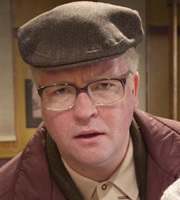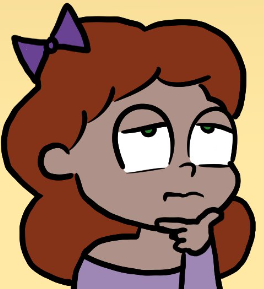- Welcome to Cook'd and Bomb'd.
-
 Life After Oz (the HBO prison...
by imitationleather
Life After Oz (the HBO prison...
by imitationleather
[Today at 09:00:48 AM] -
 Black Jeans?
by Jerrykeshton
Black Jeans?
by Jerrykeshton
[Today at 08:59:34 AM] -
 Trans Mania: Graham Linehan...
by Terry Torpid
Trans Mania: Graham Linehan...
by Terry Torpid
[Today at 08:56:24 AM] -
 Donald Trump
by Mobius
Donald Trump
by Mobius
[Today at 08:55:23 AM] -
 Richie Sunak - The Decline...
by Psybro
Richie Sunak - The Decline...
by Psybro
[Today at 08:53:27 AM] -
 Robert Fripp and Toyah Willcox...
by JaDanketies
Robert Fripp and Toyah Willcox...
by JaDanketies
[Today at 08:53:01 AM] -
 Israel-Gaza Conflict III -...
by Fambo Number Mive
Israel-Gaza Conflict III -...
by Fambo Number Mive
[Today at 08:52:18 AM] -
 Scotland abandons 75% 2030...
by Deano
Scotland abandons 75% 2030...
by Deano
[Today at 08:52:03 AM] -
 Jimmy Carr's new Netflix special....
by Des Wigwam
Jimmy Carr's new Netflix special....
by Des Wigwam
[Today at 08:48:42 AM] -
 The All New Comics Thread...
by madhair60
The All New Comics Thread...
by madhair60
[Today at 08:48:31 AM]
Members
 Total Members: 17,819
Total Members: 17,819 Latest: Jeth
Latest: Jeth
Stats
 Total Posts: 5,577,541
Total Posts: 5,577,541 Total Topics: 106,660
Total Topics: 106,660 Online Today: 832
Online Today: 832 Online Ever: 3,311
Online Ever: 3,311- (July 08, 2021, 03:14:41 AM)
Users Online
 Users: 102
Users: 102 Guests: 684
Guests: 684 Total: 786
Total: 786 DrGreggles
DrGreggles mrpupkin
mrpupkin stranger
stranger Caprain Peacock
Caprain Peacock cakeinmilk
cakeinmilk MrMealDeal
MrMealDeal lebowskibukowski
lebowskibukowski Nibbsy
Nibbsy Mortimer
Mortimer Bunty Levert
Bunty Levert Bently Sheds
Bently Sheds holdover
holdover mattyc
mattyc greenman
greenman George White
George White FalseRodHull
FalseRodHull burst_arm
burst_arm Buelligan
Buelligan Incy Wincy Mincey
Incy Wincy Mincey Obel
Obel Butchers Blind
Butchers Blind sardines
sardines oilywater
oilywater OpenMikeKnight
OpenMikeKnight Psybro
Psybro KaraokeDragon
KaraokeDragon fuzzyste
fuzzyste Deano
Deano Mobius
Mobius BeardFaceMan
BeardFaceMan SirDoris
SirDoris Norton Canes
Norton Canes Brundle-Fly
Brundle-Fly cheesebot
cheesebot J Peasemould Gruntfuttock
J Peasemould Gruntfuttock Jerrykeshton
Jerrykeshton Senior Baiano
Senior Baiano copa
copa Thosworth
Thosworth Tread
Tread Ruben Remus
Ruben Remus BritishHobo
BritishHobo madwolfinamatchbox
madwolfinamatchbox letsgobrian
letsgobrian JaDanketies
JaDanketies koren
koren cabbie judas
cabbie judas dead-ced-dead
dead-ced-dead thr0b
thr0b Uncle TechTip
Uncle TechTip studpuppet
studpuppet Egyptian Feast
Egyptian Feast Pavlov`s Dog`s Dad`s Dead
Pavlov`s Dog`s Dad`s Dead Nice Relaxing Poo
Nice Relaxing Poo Tikwid
Tikwid Good One of Wally
Good One of Wally Des Wigwam
Des Wigwam Paul Calf
Paul Calf Armin Meiwes
Armin Meiwes beanheadmcginty
beanheadmcginty Eggy Mess
Eggy Mess rilk
rilk Goldentony
Goldentony hcrumble
hcrumble Epic Bisto
Epic Bisto Mr Padgett
Mr Padgett Cottonon
Cottonon mikeyg27
mikeyg27 StooeyGK
StooeyGK Evil Knevil
Evil Knevil zenithed
zenithed Malachi Constant
Malachi Constant DreadedScotsman
DreadedScotsman
